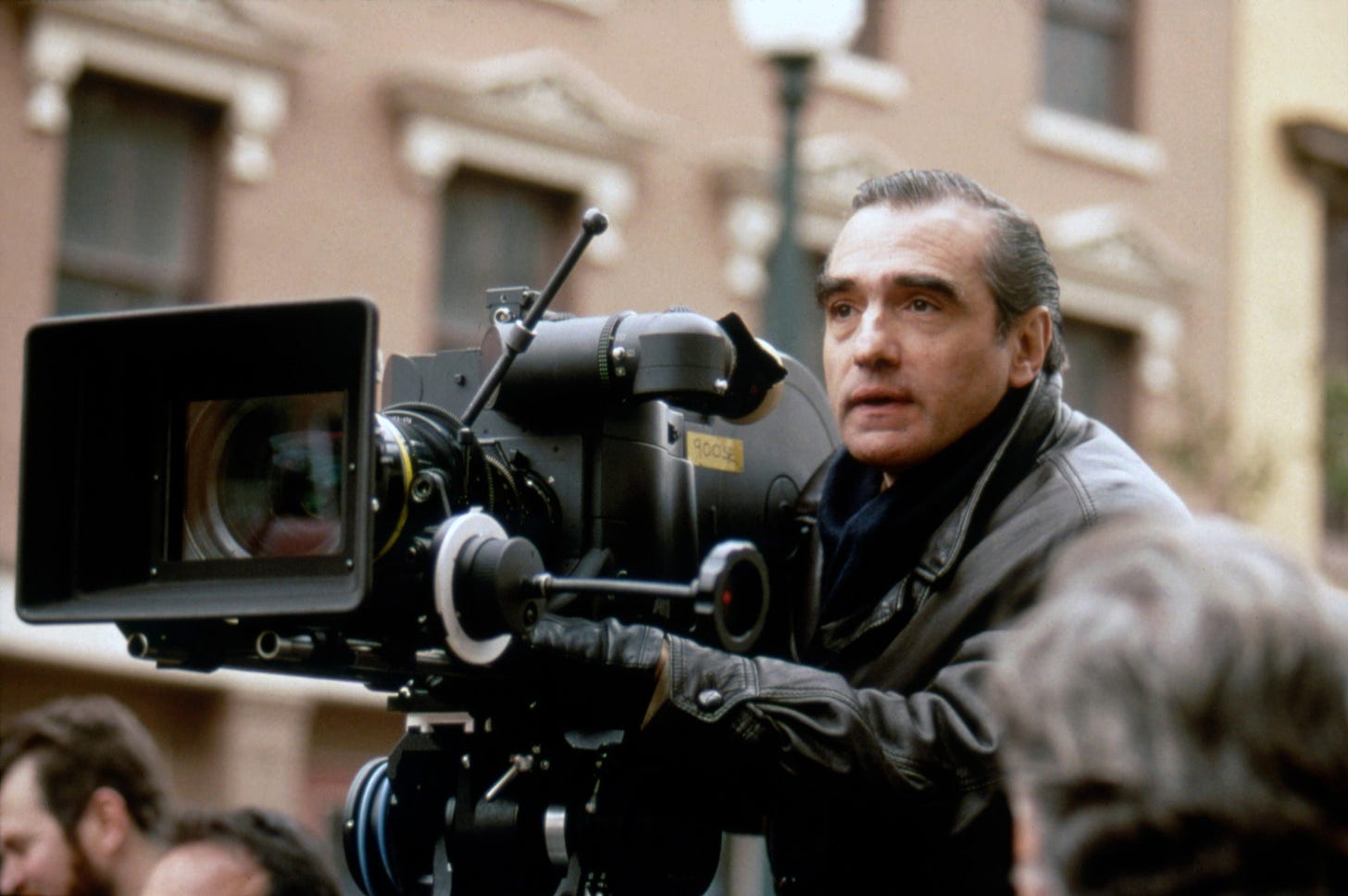
Discover more from 5AM StoryTalk
When Martin Scorsese Went to War with the NY Times Over Cultural Diversity
The legendary filmmaker's rebuttal of a spectacularly ignorant editorial published by the paper should be memorized by all art lovers
Back in 1993, New York Times staff writer Bruce Weber penned a churlish, rambling, sometimes outright infantile editorial in the wake of Italian filmmaker Federico Fellini’s death. You can read it here, but I warn you, it’s just about as intellectually petulant as it comes. Basically, the guy’s problem is that in a world where there’s so much to watch and read, it’s really, really unfair that foreign filmmakers, such as the late Fellini, expect him to work so hard to understand their artsy-ass films. After all, there are a lot of action films and even more TV to watch, so if you want his time, maybe make more middlebrow fare and put a stop to the pretentious obtuseness.
Well, director Martin Scorsese was having none of that bullshit when he read Weber’s piece. He wrote a blistering rebuttal that is one part a defense of Fellini, one part advocacy for film and artistic expression in general, and one part eloquent and brutal denouncement of willful ignorance and intolerance for cultural diversity. His words, especially regarding diversity, speak to his deep passion for cinema and the arts. They’re words you should take to heart, as well. One of art’s great powers is to create understanding where once there was none. And one of our great powers as individuals is to shout down the kind of ignorance Weber preached in this intellectually embarrassing editorial - as Scorsese did here.
What do you think of the filmmaker’s letter?
New York,
19 Nov 1993
To the Editor:
“Excuse Me; I Must Have Missed Part of the Movie” (The Week in Review, 7 November) cites Federico Fellini as an example of a filmmaker whose style gets in the way of his storytelling and whose films, as a result, are not easily accessible to audiences. Broadening that argument, it includes other artists: Ingmar Bergman, James Joyce, Thomas Pynchon, Bernardo Bertolucci, John Cage, Alain Resnais and Andy Warhol.
It’s not the opinion I find distressing, but the underlying attitude toward artistic expression that is different, difficult or demanding. Was it necessary to publish this article only a few days after Fellini’s death? I feel it’s a dangerous attitude, limiting, intolerant. If this is the attitude toward Fellini, one of the old masters, and the most accessible at that, imagine what chance new foreign films and filmmakers have in this country.
It reminds me of a beer commercial that ran a while back. The commercial opened with a black and white parody of a foreign film — obviously a combination of Fellini and Bergman. Two young men are watching it, puzzled, in a video store, while a female companion seems more interested. A title comes up: “Why do foreign films have to be so foreign?” The solution is to ignore the foreign film and rent an action-adventure tape, filled with explosions, much to the chagrin of the woman.It seems the commercial equates “negative” associations between women and foreign films: weakness, complexity, tedium. I like action-adventure films too. I also like movies that tell a story, but is the American way the only way of telling stories?
The issue here is not “film theory,” but cultural diversity and openness. Diversity guarantees our cultural survival. When the world is fragmenting into groups of intolerance, ignorance and hatred, film is a powerful tool to knowledge and understanding. To our shame, your article was cited at length by the European press.
The attitude that I’ve been describing celebrates ignorance. It also unfortunately confirms the worst fears of European filmmakers.
Is this closed-mindedness something we want to pass along to future generations?
If you accept the answer in the commercial, why not take it to its natural progression:
Why don’t they make movies like ours?
Why don’t they tell stories as we do?
Why don’t they dress as we do?
Why don’t they eat as we do?
Why don’t they talk as we do?
Why don’t they think as we do?
Why don’t they worship as we do?
Why don’t they look like us?
Ultimately, who will decide who “we” are?
—Martin Scorsese
If this article added anything to your life but you’re not up for a paid subscription, consider buying me a “coffee” so I can keep as much of this newsletter free as possible for the dreamers who couldn’t afford it otherwise.
If you enjoyed this particular article, these other three might also prove of interest to you:




















As brilliant a rebuttal as I've ever read.
And to tie this into a timely moment, here's Kris Kristofferson's salute to Scorsese when the director was awarded the 25th AFI Lifetime Achievement Award:
https://youtu.be/N-dq5BqjJzk?si=ccnF2AWgFnvPDX1P
The urge for everyone to ‘be like us’ is a tribal desire for inclusion in ‘the group’ which of course has suspicion of and disdain for outsiders. Ironically, the ‘Hero With A Thousand Faces’ seen embodied in so many leading roles is by definition an outsider.